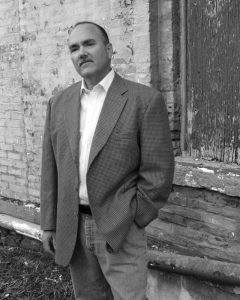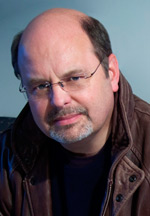Meet Chuck Sambuchino!
Chuck Sambuchino is an editor for Writer’s Digest Books (an imprint of F+W Media) and is the editor of Guide to Literary Agents as well as Children’s Writer’s & Illustrator’s Market. He also oversaw the third edition of Formatting & Submitting Your Manuscript. Chuck has instructed on writing and publishing at more than 50 writing events in the past five years, including presentations in Italy and Canada, and he is sometimes one of the conference’s keynote speakers. His humor book, How to Survive a Garden Gnome Attack (2010), was featured by Reader’s Digest, USA Today, The New York Times and AOL News.
Chuck is also a writer and freelance editor. He is a produced playwright, with both original and commissioned works produced. He is a magazine freelancer, with more than 600 of his articles appearing in print. His website–the Guide to Literary Agents blog–is one of the largest blogs on writing & publishing.
Chuck is the the keynote speaker for the opening of MWW Part II on Thursday evening. You will not want to miss his presentation, Mastering the In-person Pitch. This is a chance for Part II participants to practice their “agent pitch.” Chuck will critique the pitch for all to hear. Individuals can pitch or simply attend to listen in on other pitches. It’s an opportunity for writers to rehearse their elevator pitch before sitting face-to-face with agents. This session targets fiction and nonfiction writers, both novice and intermediate; and it breaks down what needs to be in a pitch, and what NOT to include in a pitch. Chuck will listen to sample pitches to help you prepare for your pitch with an agent on Friday or Saturday.
New this year, MWW offers a Query Critique with Chuck Sambuchino (or Jane Friedman). For an additional fee of $35, you can meet for a 10-minute one-on-one consultation with either Chuck or Jane. The deadline is July 1st, so register NOW if you want to take advantage of this great opportunity!
MWW intern Linda Taylor recently interviewed Chuck about his appearance at this summer’s workshop.
Q. First and most important, my husband and I have a few garden gnomes in our yard, several around our house, and one on the flag out front that says “Welcome Gnome.” I assume we should be worried?
Very worried. Gnomes cannot be trusted under any circumstances. These gnomes outside are no doubt probing your outer defenses at this very minute, looking for weaknesses.
Q. Second, and more on a serious note, how does such an unusual and interesting idea like that become a book? What do you tell potential authors about their ideas for books–even the really unusual ideas? (After all, someone thought putting Jane Austen with zombies would be a good idea . . .)
Nonfiction books simply need three elements to come to life: 1) a unique or interesting idea, 2) proof that an audience exists to buy it, and 3) an author with platform who can sell books. Even very unusual ideas, such as GNOME, can come to life, as long as those three elements are in place. From a writing perspective, you would pitch a book on New York architecture the same way you would pitch one on a history of unicorns: by addressing elements 1, 2 and 3.
Q. Briefly describe your journey as a writer–from your bio on your blog, you appear to have done a lot of types of writing from newspapers and magazines, to writing scripts, to writing articles and books (the latter ranging from resource manuals to humor). When did you first decide to become a writer and how did your path lead you to where you are today?
In high school, I was always the one in the group who could tell a story the best. I didn’t realize it, but that was the origin of me as a writer. In college, I majored in public relations and then decided I didn’t want a job in PR, so I took an entry-level position with a weekly newspaper when out of school. I got promoted to reporter and also started freelancing for magazines on the side. This gave me some writing cred when I applied to Writer’s Digest Books. Once I joined WD books, I started writing plays and books, and saw success with both. During the day, I am an editor for WD Books, and during the night, I write humor books and screenplays. (That’s the short version, but no one would have the desire, nor patience to read the long version.)
Q. What advice, then, do you have for young writers? for older writers?
I could speak on this question for one week straight and still have advice to give. But I will say this: No matter if you are old or young, some across-the-board pieces of advice for writers include 1) keep moving forward and do not give up, 2) build your writer platform and make connections with other people, and 3) always write the best book possible, because the cream rises to the top.
Q. At the Midwest Writers Workshop, you’re teaching on several topics, including “Mastering the In-Person Pitch.” That’s probably one of the most frightening parts of being a writer–working on a computer composing pages is one thing, having to then do a “sales job” in order to get that book published is quite another. What do you say to allay those fears and help even the most introverted writer?
I will cover the nuts & bolts of all this in my speech at the event. But writers should know that agents understand how nervous writers get, so they’re pretty patient with everything. Also, pitching a book means following a step-by-step formula. Once you know what to address, then it’s all a matter of filling in the blanks.
Q. Another session topic is “Chapter 1 Do’s and Don’ts.” What’s the worst way to start a book? Do you have an example (beyond Snoopy’s “It was a dark and stormy night . . .”)?
Avoid descriptions of the weather. Don’t start with a dream. Try not to be inside of a character’s head for very long or at all.
Q. Your third topic is “The Business of Scriptwriting.” Did you find it to be an easy or natural transition to scriptwriting from all of the other types of writing you do? What is most rewarding and/or most challenging about scriptwriting?
“Scriptwriting” means writing plays and/or screenplays. I wrote plays before I did anything else. Now I’m trying screenplays. It’s an unusual transition, but there are upsides. When your work becomes a play, then the written dialogue is king, and it’s very rewarding to hear an audience erupt in laughter or be as quiet as can be when listening to your words. The reward with screenwriting is writing in a visual medium, and that the pay is much better than most writing assignments.
Q. Is there anything else you would like to add, which might include hints on your philosophy/approach to writing and/or your teaching style?
Not really. I teach at a lot of writers conferences. I love meeting writers. I am happy to talk with anyone at the event who has a question or five about their journey. I will see you all soon!
Note: Chuck’s Part II Sessions:
- Chapter 1 Dos and Don’ts – This workshop examines that all-important Chapter 1. It spends a lot of time going over what not to do-listing clichés and overused techniques that repeatedly pop up in chapter 1 manuscripts, with comments from agents and editors alike. Following a discussion of agent pet peeves, the workshop addresses what writers should be doing to draw readers in.
- Start Here: How to Get Your Book Published Panel [Cathy Day, moderator]; with Jane Friedman, Kathleen Rooney, JL Stermer
- The Business of Scriptwriting: You’ve Written a Play or Screenplay-Now What? – This workshop examines what writers need to do if they’ve finished that play or screenplay and don’t know what to do now. We’ll address targeting markets, getting plays read/workshopped, writing script queries, the difference between agents and managers, and more. Everything is discussed, from writing and rewriting to contests and dealing with directors. Handouts provided. It’s not a session about craft; it’s a session about business-for writers who have a script and no idea what to do with it.


